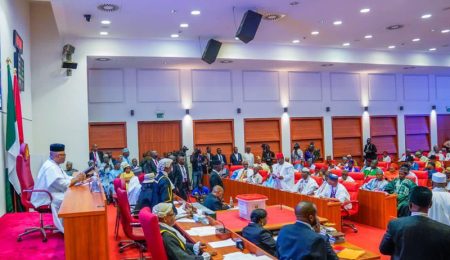Former Rivers State Commissioner for Employment and Empowerment, Dr Leloonu Nwibubasa, has dismissed the peace deal brokered by President Bola Tinubu between Governor Siminalayi Fubara and Federal Capital Territory Minister, Nyesom Wike, as nothing more than a “surrender” by the governor.
Speaking during an interview with ARISE News on Friday, Nwibubasa argued that the reconciliation lacked fairness, equity and justice, which are essential to sustainable peace.
“I want to state with all sense of responsibility that I didn’t see a reconciliation. I saw a surrender,” Nwibubasa said, reacting to the much-publicised Abuja meeting where warring factions were said to have agreed to end their political differences.
“You don’t talk about peace when you are not talking about equity. You cannot talk about peace when you are not talking about fairness,” he added, insisting that Governor Fubara attended the meeting alone, without a balanced delegation, while “all the stakeholders were on the side of the FCT Minister.”
According to him, the governor went to Abuja as an individual and not as a representative of Rivers State’s collective interest. “If he carried the embodiment of the desires of Rivers State, then we should have seen a more balanced delegation… that was a surrender and not a reconciliation.”
Nwibubasa argued that true peace cannot be achieved unless the root issues — political control and economic management of the state — are addressed. “Until there is equality, until there is justice, sustainable and lasting peace cannot be said to have been achieved,” he said. “This whole fight has always been about pushing a man to the desire of a single person.”
He warned that if the current outcome merely returns the state to a political status quo where Wike retains de facto control, then real progress is impossible. “If all that is in the reconciliation is for everyone to go back and bow before the same man, then it means we have returned to status quo… And that cannot bring peace.”
On the implications for governance in the state, Nwibubasa was blunt: “Rivers State will not make progress until we have a leader who possesses the will to be different, the courage to dare, and not the timidity to maintain the status quo.”
He said the only short-term benefit of the current arrangement might be the lifting of the unofficial state of emergency, but warned of continued interference in governance. “The same gladiators are going to come back… and continue to make Rivers State that cow that they will milk for their personal use.”
He lamented that the initial fight by Governor Fubara to protect the state’s resources appears to have been lost. “If at this point he could not succeed in that, it simply means he has failed and we are going back to status quo,” he said.
Nwibubasa also linked the peace deal to political ambitions ahead of the 2027 general elections, saying the entire crisis has always had a 2027 undercurrent. “Everything the FCT minister is doing today is to see that he pleases Mr President, to prove he has something to offer in 2027.”
He warned that the political elite cannot dictate the will of the Rivers people in the next elections: “People will not vote because of Governor Fubara. People will not vote because of his super-minister. People will vote out of the pain of their hunger… of unemployment… of disease and misery.”
According to him, anyone claiming to be able to deliver Rivers votes “hook, line, and sinker” to President Tinubu is misleading the presidency. “If we live long enough to be in 2027, everyone who feels that they will take 2027 into their pocket will be surprised.”
On the state of emergency, Nwibubasa said there is no more justification for its continuation. “Today, both members of the Assembly and the governor are already shaking hands and giving press statements that peace has returned. So, if peace has returned, the basis for the emergency rule died yesterday,” he said, calling for the immediate restoration of full constitutional governance in the state.
He stressed that peace can only be sustainable if the governor engages directly with Rivers people to explain the terms of the agreement. “The citizens of Rivers State are the principal stakeholders. If this agreement remains between him and his godfather… it becomes a problem.”
He warned that failure to carry the people along could trigger fresh rejection: “The people have the right to reject it. They will reject both the peace process, the governor, and the godfather.”
Reflecting on lessons from the political crisis, Nwibubasa cautioned against leaders mortgaging themselves to political benefactors. He accused the FCT Minister of sponsoring the nomination forms and campaigns of virtually all political officeholders in the state.
“He who pays the piper is dictating the tune,” he said. “Politics, if you must represent the people, must not be reduced to business.”
Nwibubasa called for internal reforms in political parties to prevent political godfatherism and promote genuine representation. “We need to change how political parties operate so that people can vie freely and not be hooked by conditions that serve vested interests.”
For Rivers to move forward, he said, the state needs bold leadership: “Any leader that will come in must possess the will to be different, the courage to dare, and not the timidity to maintain the status quo. Our state is significant and pregnant with purpose. It should not be left in the hands of those whose minds are atrophied with prejudice and bigotry.”
Boluwatife Enome
Follow us on:
